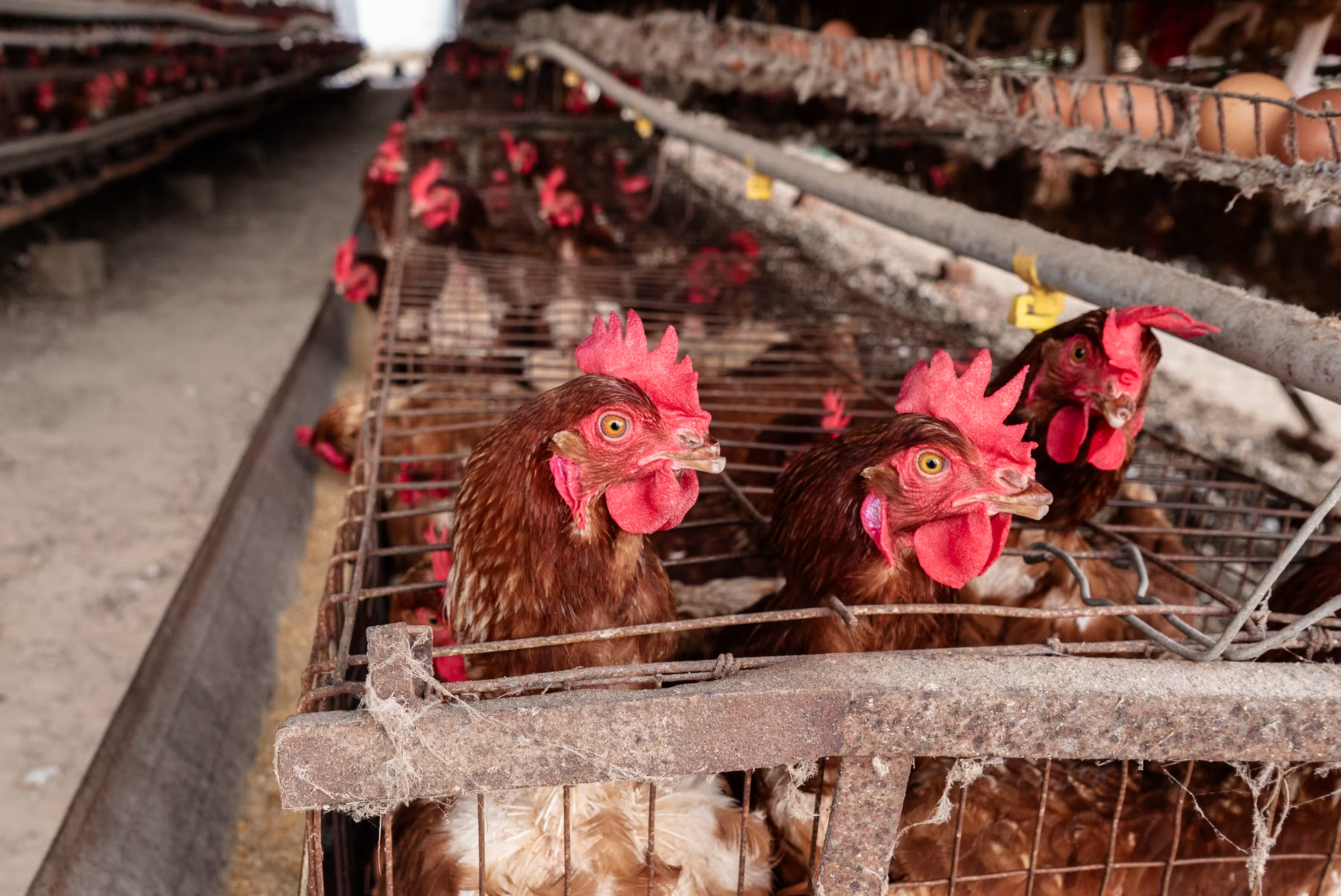Fair and Fowl: Global Company Rankings for Cage-Free Progress in 2025





The Open Wing Alliance has released its latest “Fair and Fowl” report assessing progress on cage-free egg commitments for global companies in 2025.

The global movement to spare hens from cages continues to gain momentum, as does the demand for progress reporting on which companies are honoring promises and which ones are lagging behind. Each year, The Open Wing Alliance (OWA) assesses that progress worldwide and ranks companies across five different sectors: hospitality, manufacturers, restaurants, retailers, and food service. This year’s report shows that we’re headed toward a cage-free future, with 92% of cage-free commitments now fulfilled.
In the fight to reduce animal suffering and eradicate cruel food-sourcing practices like the use of battery cages, data matters. The OWA’s efforts to collect, analyze, and publish accurate data on corporations around the world are what keep progress moving forward for hens trapped in confinement, rather than stagnating.
With 92% of cage-free egg commitments (with deadlines of 2024 or earlier) now fulfilled, the ultimatum for companies is clear: Make cage-free progress, or lose consumers to more responsible competitors. Companies with a growth mindset value consumer demand and know that sparing birds from cruel confinement is just good business.
Meaningful cage-free egg progress for global companies
In the 2025 Fair and Fowl report, the OWA highlights the “Early Birds” (companies making consistent, meaningful progress on their cage-free commitments) and calls out the “Bad Eggs” (companies failing to make meaningful progress or provide transparency of that progress).
The majority of companies across sectors are fulfilling their cage-free commitments, reporting progress on global and regional levels, and demonstrating clear steps to fulfill their commitments in emerging markets. Notable companies in the “Early Bird” category include Capella Hotel Group, Groupe Pasquier, The Cheesecake Factory, Lagardère Travel Retail, and Compass Group.
On the other end of the cage-free spectrum, companies lagging behind on global commitments and progress are now finding out what it means to be held accountable for their promises, and their failure to act on them. These “Bad Egg” players include Radisson Hotels, Puratos, Alsea, Alimentation Couche-Tard, and Newrest.
Companies can report global cage-free percentages, share regional percentages, pledge to use credits, and publish incremental benchmarks on how they intend to reach their cage-free goals. Consistent progress reporting is essential for staying on track and maintaining pledges to customers. Companies lagging behind on global commitments are learning that corporate accountability and transparency are non-negotiable for consumers.
Cage-free reporting and corporate social responsibility
Transitioning to a cage-free egg supply is one of the easiest and most cost-effective ways to improve the lives of factory-farmed animals, with benefits that extend to animals, consumers, and companies alike.
Cage-free egg commitments are the baseline for corporate social responsibility and send a clear message to customers, stakeholders, and the public that a company values ethical sourcing and does not permit the cruel confinement of hens in its supply chain.
Ongoing evaluation of and reporting on those commitments provides a simple and effective framework for meeting animal welfare goals in a transparent, timely manner. By publishing cage-free progress at incremental benchmarks, companies stay accountable, maintain integrity with customers, and avoid “humanewashing” their commitments.
Global equity in cage-free egg progress
Prioritizing cage-free progress globally and regionally is a critical component of demonstrating true cage-free progress. Where you live in the world should not be the determining factor in whether or not your food sources are safe and free from extreme animal cruelty.
Companies leading the way in cage-free commitments do so in every country in which they operate, rather than picking and choosing where it’s most convenient to implement change.
Around the world, corporations are expected to report on progress in more established markets like Europe and North America, and demonstrate progress toward cage-free commitments in emerging markets like Africa, Asia, and Latin America, where cage-free production might be as low as 20% or less. Cage-free supply chains are growing worldwide with emerging markets in places like Brazil, China, and Malaysia.
The Open Wing Alliance (OWA) is a global network founded on one guiding principle: that every hen deserves the space to spread her wings. Founded in 2016, the OWA brings together animal advocacy organizations around the world to end the abuse of chickens raised for food.
How can I help?
For corporations interested in joining the global cage-free egg movement, the OWA offers resources and support to help get started and successfully navigate the transition.
For consumers around the world who want to help hold companies accountable for the billions of animals suffering in cages, now is the time to take meaningful action and make sure your voice is heard. Head over to the Fast Action Network today!
 Abby Jade Sarfas
Abby Jade Sarfas




